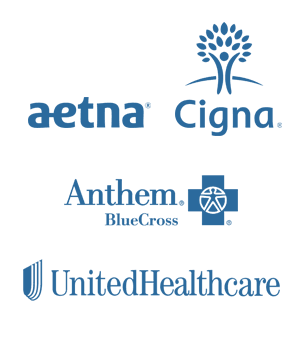

About 12-Step Programs
The first 12-Step program created was Alcoholics Anonymous in the later part of the 1930’s. This initial 12-step program was designed to help individuals struggling with alcohol addiction learn to control impulses to continue drinking while remaining positive about recovery from alcoholism. This model for a 12-step program became so popular that other addiction groups began to change their own support design to mirror Alcoholics Anonymous. The 12-Step program model relies on a spiritual connection with God which many religious and agnostics have found centering and motivating. How each individual connects with God and defines their relationship is viewed as personal and adaptable.
The goal of 12-Step program models is to provide addicts with a fellowship group, allowing people to lean on and witness to others struggling with the same heroin addiction and opiate addiction issues. The main goal of 12-Step programs is to help addicts maintain control over their compulsion to use drugs or alcohol and obtain sobriety. Uniting meth users and suboxone addicts allow these individuals to support others with addictions like their own. The mission of AA is to “stay sober and help other alcoholics to achieve sobriety” while avoiding situations where people feel judged.
Beliefs Supporting the 12-Step Program
- Addiction is considered a disease
- Addicts require the support of other addicts struggling with recovery
- Reliance on a “higher power” is fundamental
- Abstinence from drug seeking behaviors is required
- Recovery becomes a lifelong goal and process
- Supporting other addicts in their recovery process is important for stability
- Accepting the natural limitations of human behavior
Looking for 12-Step Programs?
12-Step Meetings

Click Below or Call Now (714) 841-2260
Almost all individuals that are involved in a 12-Step program commit to attending regular group meetings in local venues. Studies have shown that nearly 10% of all adults have attended an Alcoholics Anonymous meeting during the course of their lives. This is a surprising number and suggests that the need for 12-Step programs is huge across the nation. Most attendees come to at least 2 meetings each week, although those struggling with addiction may choose to attend daily meetings.
Each meeting begins with introductions which include welcoming new members and sharing stories of personal addiction and recovery journeys. Many have heard these introductions portrayed in movies or TV shows and are somewhat familiar with the idea. The basic opening introduction of oneself is the following:
“Hello, my name is (first name), and I am an alcoholic (heroin addict, meth addict…). My last drink was (length of time).”
The reason for this informal introduction is to keep the meeting times very intimate. This personal, confidential, and informal opening allows those individuals attending to engage with each other on a healthy, supportive level. Every AA meeting is confidential and keeping the information shared within the group setting is a code all attendees agree to. When outside your 12-Step program meeting, all members are committed to keeping the identity of other AA members confidential. New members are encouraged to attend a number of meetings regularly before making a decision to join a 12-Step program. Accountability among 12-step program attendees is vital to the personal and group success rates. Avoiding the trap of old behaviors that lead to drug or alcohol addiction in the first place is key.
How the 12-Step Program Model Works
For most recovering drug addicts and alcoholics, cost and availability of meetings are cited as two of the top reasons that 12-Step programs are proven to be effective. The majority of heroin addicts seeking recovery are not able to afford expensive support group fees, or able to travel distances from work or home to attend meetings. They must commit to compliance with the 12-Step program guidelines in order to see progress and gain control over their addictions.
Drug addicts and alcoholics are often dealing with the lasting consequences of their past or current addiction issues. When looking for drug rehab in Orange County, CA it is important to take into consideration their drug rehab support programs for long term addiction recovery success. Individuals seeking long term addiction recovery programs need healthy places to turn where they can work on establishing their own network of friends and build accountability with others.

Work the 12-Steps

The 12-Step program is basically a template that helps those fighting drug addiction to prioritize and regroup, setting healthy boundaries and expectations. Establishing new routines can be very difficult for many who have given their lives over to drug addiction in the past. The 12-steps help by first addressing the reality that all addicts must accept; they have a problem they cannot solve on their own.
Depending on the specific AA meeting you attend, there may be some small variation in the belief that a Higher Power is central to healing and recovery. The creator of AA focused much of his energy and focus on the reality that a Higher Power would provide direction and inner support needed to fight the war of addiction. What is certain is that every member of a 12-Step program will learn the importance of each of the 12 steps defined.
12-Step Sponsors
Every AA group member has a sponsor assigned to them to be their accountability partner and offer addiction support as a role model. This is usually another person within the same AA group, who attends the same meetings and events as the individual. All sponsors have been through some sort of addiction recovery themselves, giving them the unique perspective required to be able to engage new, vulnerable attendees. These individuals have been through all the stages of addiction recovery and have maintained sobriety for extended periods of time.
For many AA attendees, these mentoring relationships give them an otherwise unattainable recovery resource, a fellow addict with whom they can confide. The battle of addiction is a long hard road, and attempting to navigate it alone is rarely successful. Having a psychological support is vital to maintaining sobriety. This special relationship between sponsor and attendee can make all the difference for newly sober individuals. Many of these mentoring relationships last for years, and lifetime friends are often made.
The bond that recovering addicts create with a sponsor can be a special one. It’s not out of the ordinary for individuals to keep in touch with their sponsor for years and to be inspired to serve as a sponsor as a way of paying the act forward.
The 12 Steps of Alcoholics Anonymous

Step 1: We admitted we were powerless over alcohol—that our lives had become unmanageable.
Step 2: Came to believe that a Power greater than ourselves could restore us to sanity.
Step 3: Made a decision to turn our will and our lives over to the care of God as we understood Him.
Step 4: Made a searching and fearless moral inventory of ourselves.
Step 5: Admitted to God, to ourselves, and to another human being the exact nature of our wrongs.
Step 6: Were entirely ready to have God remove all these defects of character.
Step 7: Humbly asked Him to remove our shortcomings.
Step 8: Made a list of all persons we had harmed and became willing to make amends to them all.
Step 9: Made direct amends to such people wherever possible, except when to do so would injure them or others.
Step 10: Continued to take personal inventory and when we were wrong promptly admitted it.
Step 11: Sought through prayer and meditation to improve our conscious contact with God, as we understood Him, praying only for knowledge of His will for us and the power to carry that out.
Step 12: Having had a spiritual awakening as the result of these Steps, we tried to carry this message to alcoholics, and to practice these principles in all our affairs.

